Marine cargo insurance offers essential protection for businesses involved in international shipping. This insurance provides peace of mind to exporters, importers, and freight forwarders, ensuring their valuable cargo remains covered throughout the journey. Without a marine cargo insurance policy, even a minor mishap could result in significant financial loss. Understanding several policies and coverage options helps businesses choose the right plan tailored to their needs. A well-chosen policy can be the difference between financial stability and unexpected setbacks.
This article provides an overview of coverage possibilities, types of marine cargo insurance, and key classifications. It also explores the legalities involved, helping businesses make informed decisions when selecting the right plan.
Common Events and Scenarios Covered in Marine Cargo Insurance
Marine cargo insurance policy typically covers a range of events and scenarios to protect businesses during shipping. Some common covered events include:
- Damage from Rough Seas: Coverage for cargo damaged due to severe weather conditions during transit.
- Fire or Explosion: Protection if goods are damaged or destroyed by fire or explosion on board.
- Theft or Piracy: Coverage against the theft of cargo or piracy incidents while at sea.
- Cargo Jettison: When cargo must be thrown overboard to save the ship or crew, the loss is covered.
- General Average: Compensation for shared losses if part of the cargo is sacrificed to save the vessel.
- Collision and Sinking: Coverage for damages if the vessel carrying the cargo collides or sinks.
- Natural Disasters: Protection against losses from earthquakes, tsunamis, or other natural calamities during transit.
These scenarios highlight the importance of marine cargo insurance in managing risks and ensuring financial stability during international trade.
Exclusions in Marine Cargo Insurance
Marine cargo insurance includes certain exclusions, scenarios, or events not covered under the policy. Some common exclusions include:
- Inherent Vice: Loss or damage caused by the natural characteristics of the goods, such as spoilage or rust, is typically not covered.
- Improper Packaging: Damage from inadequate or faulty packaging or handling is excluded. The insurer expects goods to be packed properly for transit.
- Delay in Transit: Any financial losses due to delays, even if caused by a covered event, are generally not covered.
- War, Strikes, and Riots: Damage from war, strikes, riots, or civil commotions are usually excluded unless a separate war and strike policy is purchased.
- Governmental Actions: Losses due to confiscation or seizure by customs or other governmental authorities are not covered.
- Willful Misconduct: Any losses or damages caused by intentional acts or negligence by the insured are excluded.
- Nuclear Risks: Loss or damage from nuclear events, including radiation or radioactive contamination, is generally excluded.
Types of Marine Cargo Insurance Coverage
Marine cargo insurance coverage typically falls into a few main types, each offering different levels of protection for goods in transit. Here are the key types:
- All-Risk Coverage: This comprehensive policy covers almost all risks of physical loss or damage to cargo except those explicitly excluded, such as war or government seizure. It is ideal for businesses looking for broad protection.
- Named Perils Coverage: This type covers specific risks explicitly listed in the policy, like fire, theft, or sinking. It provides targeted protection for common risks but may not cover unforeseen events.
- Free from Particular Average (FPA): FPA covers partial losses only under certain conditions, such as when the loss results from a major event like a sinking or collision. It’s less comprehensive and suits businesses that can bear minor losses.
- General Average: This policy covers shared losses when cargo is intentionally sacrificed to save the ship during emergencies. All parties involved in the voyage share the costs.
- War and Strikes Coverage: This add-on policy covers risks related to war, strikes, riots, and civil commotions, offering protection for goods shipped to or through politically unstable regions.
Comparison with Other Insurance Types
Here’s a comprehensive comparison of Marine Cargo Insurance, Liability Insurance, Freight Insurance, and Ship Insurance under the same table:
| Comparison Aspect | Marine Cargo Insurance | Liability Insurance | Freight Insurance | Ship Insurance |
| Purpose | Protects the cargo during sea transit against loss or damage. | Covers legal liabilities for third-party claims arising from injury or property damage. | Covers the value of the freight charge in case of cargo loss or damage. | Protects the vessel itself against physical damage and operational risks. |
| Coverage | Damage, loss, theft, general average, jettison, and piracy. | Bodily injury, property damage, and legal defense costs. | Refund of freight charges when cargo is lost or damaged in transit. | Hull damage, machinery breakdown, collision, and total loss of the ship. |
| Typical Exclusions | Inherent vice, improper packaging, war, governmental actions. | Intentional acts, contractual liabilities, fines, and penalties. | Damage caused by inherent vice, packaging issues, and delays. | Wear and tear, mechanical breakdown (unless specified), war. |
| Ideal For | Exporters, importers, and freight forwarders need cargo protection. | Service providers, businesses, and contractors need liability coverage. | Shipping companies, logistics providers, and carriers. | Shipowners, vessel operators, and shipping companies. |
| Scope of Protection | Focuses on the physical safety of the cargo itself. | Focuses on third-party claims and potential damages caused by the insured. | Focuses on recovering freight charges for lost or damaged cargo. | Focuses on protecting the vessel and its equipment from risks. |
| Claim Settlement | Based on the value of the lost or damaged goods. | Covers the cost of legal defense and compensation to third parties. | Reimburses the freight charges when cargo is lost or damaged. | Provides compensation for repairs or replacement of the ship. |
This table helps in understanding the differences between these insurance types, allowing businesses to choose the right combination for their needs.
Also Read: What is EXW (Ex Works) in International Shipping
Types and Classification of Marine Cargo Insurance
Marine cargo insurance comes in various types and classifications designed to address specific needs and risks in transporting goods by sea. Here’s a breakdown of the major classifications:
Categorization by Transportation Method:
- Voyage Policy covers a specific sea journey from one port to another. It’s ideal for businesses that occasionally ship goods and need coverage only for particular shipments.
- Time Policy: This policy provides coverage for all shipments over a specified period, usually a year. It is suitable for regular shippers and offers flexibility and ease of managing multiple shipments.
- Mixed Policy: This policy combines aspects of both voyage and time policies, covering shipments during a specific period and particular voyages providing comprehensive coverage for businesses with varied shipping needs.
- Open Cover: This type of insurance automatically covers all shipments over a period, with terms pre-agreed between the insurer and the insured. It’s convenient for large exporters or importers with frequent shipments.
- Valued and Unvalued Policies: A valued policy states a predetermined value for the insured goods, facilitating quicker claims. An unvalued policy requires proof of value upon loss, giving more flexibility but adding time to the claim process.
If you’re shipping FCL cargo from India to the USA, partnering with a reliable cross-border logistics provider like Intoglo can simplify your shipping process and ensure comprehensive marine cargo insurance coverage.
Get following advantages with Intoglo:
- Insurance Options: Marine and cargo insurance available upon request.
- Customs Bond Services: Ensures quick and efficient customs handling in India and the USA.
- AI-Powered HTS Code Scanner: Easily identify HS codes for goods via photo.
- Transparent Pricing: Clear, itemized cost breakdown without hidden fees.
- Free Storage Days: Up to 10 free days in the USA with premium shipping lines.
- Pan-India Pickup: Coverage across all major ports and ICDs in India for easy access.
ICC Types:
The Institute Cargo Clauses (ICC) is a standardized global set of marine cargo insurance terms. There are three main types: Type A, Type B, and Type C, each offering different levels of coverage.
- ICC Type A (All-Risk):
- Coverage: Provides the most comprehensive coverage, including different types of physical loss or damage to cargo during transit, except those explicitly excluded (e.g., war, strikes).
- Benefits: Ideal for high-value or sensitive goods, offering extensive protection against unforeseen risks.
- Example: Coverage might include loss from rough handling, theft, or damage due to bad weather.
- ICC Type B (Broad Coverage):
- Coverage: Offers a more limited range of risks compared to Type A. It includes events like fire, explosion, vessel sinking, and collisions but excludes many minor risks.
- Benefits: It is suitable for goods that are less susceptible to minor damages and provides a balance between protection and cost.
- Example: Coverage would include major events like a fire on board or if a ship runs aground but would not cover theft or minor water damage.
- ICC Type C (Basic Coverage):
- Coverage: This is the most restrictive, covering only major risks such as fire, explosion, and vessel sinking or capsizing.
- Benefits: A cost-effective option for low-value cargo or when a business is willing to assume more risk.
- Example: Coverage would be applicable if the ship sank during transit but not for damages from rough seas or pilferage.
Detailed Explanation and Benefits of Each Insurance Type
- Voyage Policy:
- Explanation: A single-trip policy that covers goods during one specific journey. It ends once the cargo is delivered to its destination.
- Benefits: Useful for one-time shipments or businesses with occasional shipping needs. It provides coverage specifically tailored to the risks of that voyage.
- Time Policy:
- Explanation: Offers coverage for a fixed duration, typically one year, covering multiple shipments within that period.
- Benefits: Ideal for frequent shippers, providing flexibility and ensuring continuous protection without renewing for every shipment.
- Open Cover:
- Explanation: Automatically covers all shipments for a business during a set period, usually based on agreed terms.
- Benefits: Saves time, provides hassle-free coverage, and allows businesses to focus on operations instead of handling individual policy purchases for each shipment.
- Valued Policy:
- Explanation: States an agreed value for the shipped goods, simplifying the claim process by setting a fixed compensation amount.
- Benefits: Offers faster claims and is beneficial when the value of the goods is known and stable.
- Unvalued Policy:
- Explanation: The value of the goods is not stated upfront. Instead, it must be proven during a claim.
- Benefits: It offers more flexibility, especially when goods’ market value fluctuates, or a precise value is difficult to determine before shipment.
Intoglo’s expertise in FCL shipping from India to the USA ensures your cargo reaches its destination safely and efficiently, and the right marine cargo insurance backs it for complete protection.
Also Read: Types and Calculation of Shipping Charges
Obligations and Legalities in Marine Cargo Insurance
Understanding the obligations and legalities surrounding marine cargo insurance is crucial for businesses involved in global trade. Here’s a detailed discussion based on the following aspects:
Is Marine Cargo Insurance Mandatory or Optional?
- Marine Cargo Insurance Requirement: In most cases, marine cargo insurance is not legally required but is highly recommended. It is often considered optional from a regulatory standpoint, meaning shippers can choose whether or not to purchase coverage.
- Contractual Obligations: While not legally mandatory, marine cargo insurance may be required by contract, especially in certain trade agreements or Incoterms (International Commercial Terms). For example, when using terms like CIF (Cost, Insurance, and Freight), the seller must provide insurance for the shipment until it reaches the buyer’s destination.
- Industry Standards: Many businesses view marine cargo insurance as a standard best practice in international shipping, helping to manage risks and minimize financial losses during transit.
Legal Responsibilities and ‘General Average’ Clause in Marine Policies
- Legal Responsibilities: A marine cargo insurance policy imposes certain responsibilities on the insured parties, such as accurately declaring the value of cargo and ensuring proper packaging to prevent damage. Failure to meet these responsibilities may result in claim denial.
- General Average Clause: The’ General Average’ clause is a critical aspect of marine insurance. This legal principle requires all stakeholders (shipowners and cargo owners) to share the cost of a loss when part of the cargo is intentionally sacrificed to save the vessel during an emergency (e.g., the jettison of cargo to prevent sinking).
Example: If a ship faces rough seas and the crew jettisons part of the cargo to stabilize the vessel, all cargo owners must proportionately share the losses. A marine cargo insurance policy helps cover these unexpected shared costs, ensuring such events do not financially burden businesses.
Impact and Significance of Not Having Marine Cargo Insurance in Place
- Financial Risk Exposure: Without marine cargo insurance, businesses are fully responsible for any loss or damage to their goods during transit. This includes risks from theft, rough handling, natural disasters, and other perils, which can result in substantial financial losses.
- Increased Business Vulnerability: For exporters and importers, uninsured shipments mean greater exposure to unpredictable events. Even a minor incident, like water damage or a fire on board, can severely impact the shipment’s value and business operations.
- Risk of General Average Claims: In the event of a General Average declaration, businesses without insurance could face significant out-of-pocket expenses. These costs must be paid before the cargo is released, potentially disrupting cash flow and business continuity.
- Limited Legal Recourse: Without insurance, businesses may have limited legal avenues to recover losses from carriers or shipping lines, as standard carrier liability under international conventions is often minimal and may not fully cover the value of the goods lost or damaged.
While marine cargo insurance policy is typically not a legal requirement, it is a critical safeguard against the inherent risks of shipping goods internationally. The General Average clause, along with other legal responsibilities, underscores the importance of having adequate coverage to ensure smooth operations and financial stability during unforeseen maritime incidents.
Conclusion
Marine cargo insurance is vital in safeguarding businesses from the risks involved in international shipping. With its comprehensive coverage options—ranging from all-risk protection to specific coverages under ICC Type A, B, and C—it ensures that cargo remains protected against unforeseen events like theft, damage, and natural disasters.
Understanding the legalities, such as the General Average clause, helps businesses make informed choices, ensuring they are prepared for any challenges during transit.
Choosing the right marine cargo insurance plan is essential for protecting your maritime assets.
Along with comprehensive marine cargo insurance, Intoglo ensures smooth customs clearance in India and the USA through in-house pre-screening and provides up to 10 free days at USA destination ports with premium carriers. Stay in control with real-time tracking and transparent pricing with no hidden charges. Start shipping confidently with Intoglo’s seamless, reliable logistics solutions.


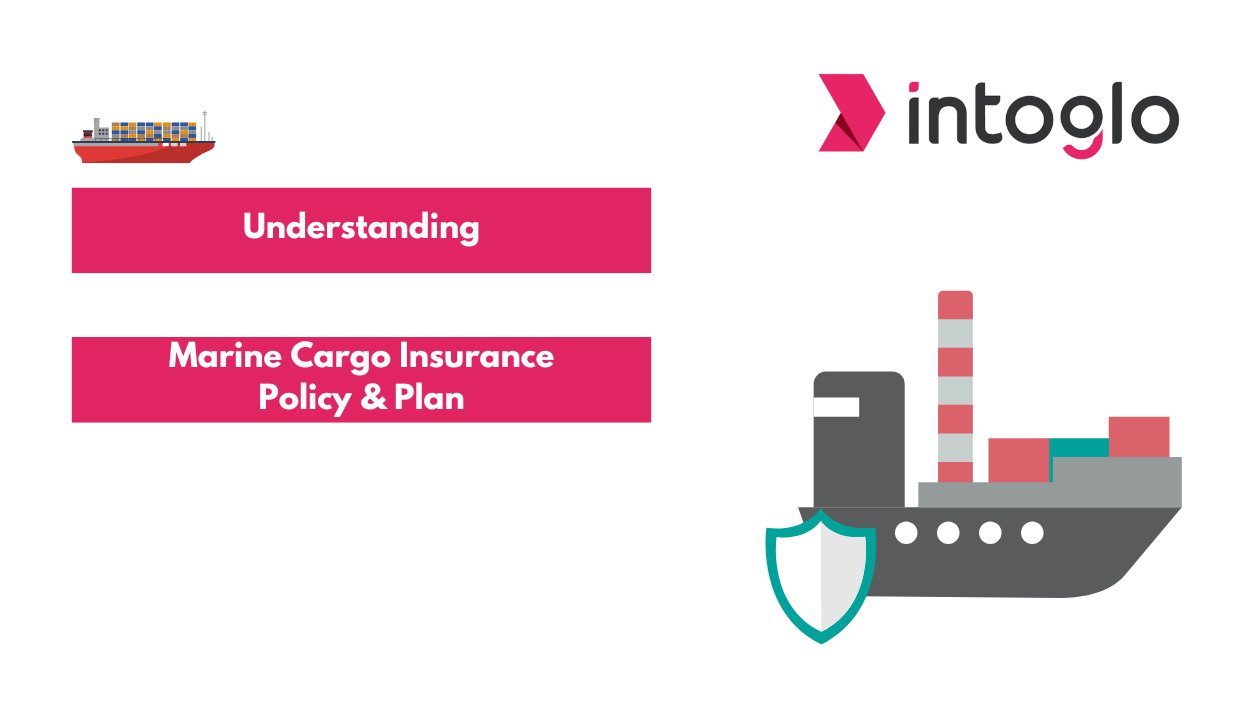
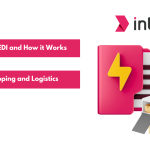
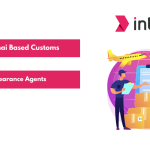
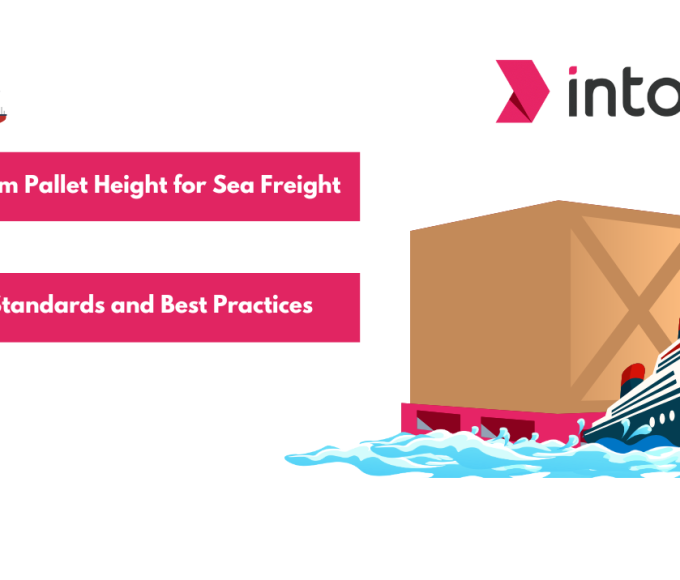
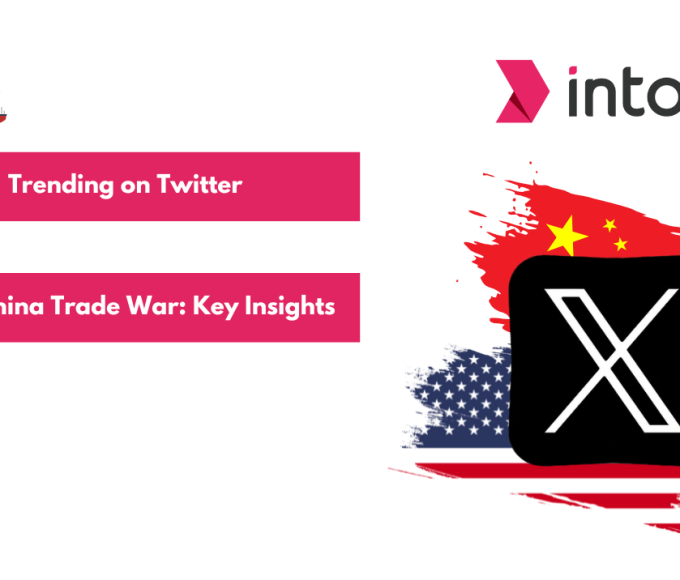
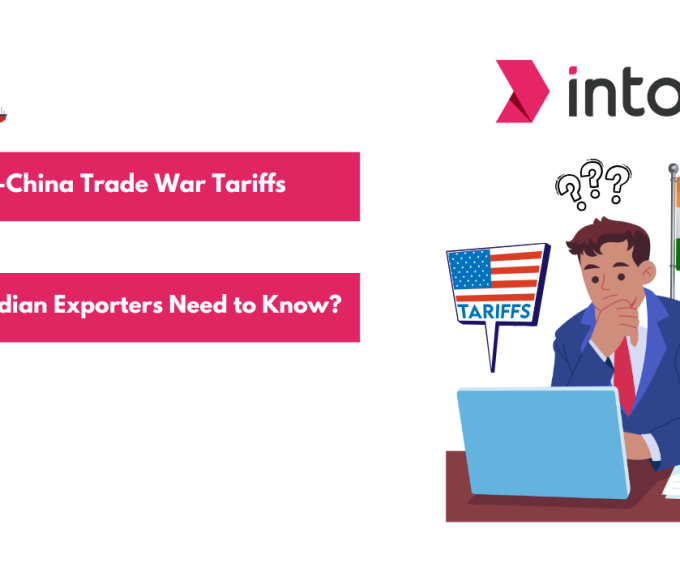
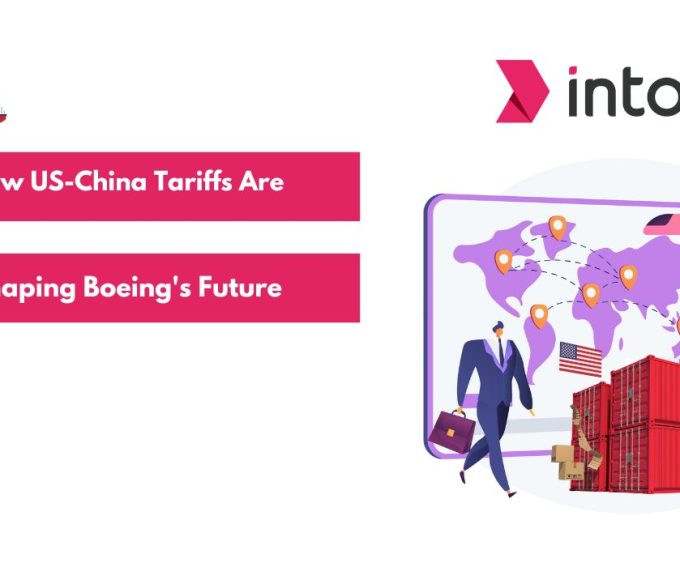
Leave a comment